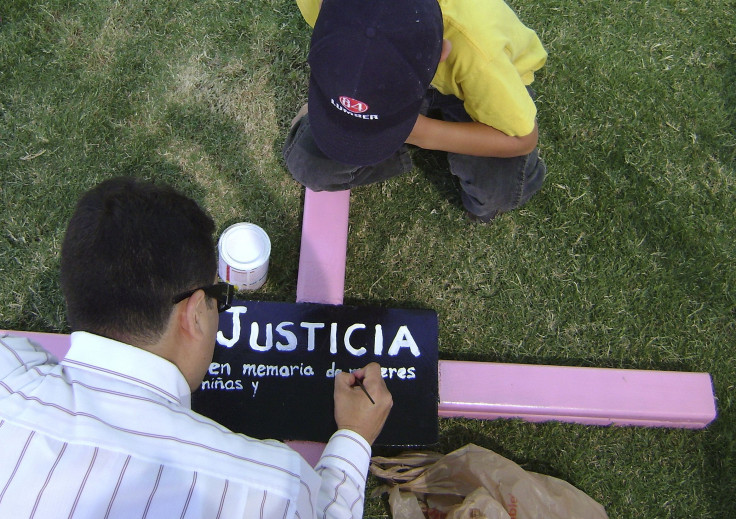
A conviction on Monday made for some less depressing news in the saga “ femicides ” and impunity in Mexico. In the context of a long and virtually unchecked epidemic of gender and gang-related violence , five men involved in a human trafficking and drug-dealing were found guilty of 11 femicides (meaning murder of a woman because of her hender). A court found that the men murdered at least 11 women between 2009 and 2011, after forcing them to work as prostitutes and to sell drugs. The case is being referred to as the “ the judgement of the century ” and the “megajuicio” or mega judgement among the Mexican press.
The conviction is a small win for human rights advocates in Mexico who have supported victims’ families and lobbied hard to make sure that the gangsters would get their day in court. It’s also a welcome interruption of the escalating climate of impunity in Mexico. Less than 10 percent of homicides lead to convictions in Mexico. Last year, 43 students were killed and the government is still not saying who was responsible. In June, political candidates from both parties were killed or kidnapped. Last week, notorious cartel leader “El Chapo” Guzmán escaped from a maximum security prison. Linked to hundreds of murders, the criminal served less than two years in prison.
Monday’s conviction offered some respite for victim’s families, who have fought hard against bureaucrats, criminals and social stigma.
“I want justice, but I also want respect; as a result of searching for our daughters and demanding their rights we receive threats, jokes and criticisms. I’d like to tell [everyone] that this keeps happening because they’re no justice,” Elvira González Vaquero, the mother of victim Perla Ivonne Aguirre González told El Processo days before the judgement .
After years of enduring those threats, González Vaquero got some of the justice she sought. The court found that the five men trapped women into a prostitution and drug-selling using fraud, intimidation and murder. Luring unsuspecting women with promises of legitimate jobs, the men would force victims into prostitution and also make them sell drugs. Refuse, and they’d be killed. The trial tapped more than 170 testimonies, 30 thousand photographs and other pieces of evidence to convict the five men, identifying their role in the crimes, according to El Fronterizo . Three female judges -- Catalina Ruiz Pacheco, Emma Terán Murillo and Mirna Luz Rocha Pined reached the unanimous verdict, which will put the five men behind bars for life.
At least 11 were murdered, but they were merely the most well-documented cases. Around 20 other murders are suspected to be linked to the crime ring which, according to human rights groups, involved not just gangsters, but also local police and other government authorities. A sixth member of the crime ring was not convicted in the nearly one dozen murders, but remains behind bars awaiting a separate trial . Four more men are to be tried in connection with the crime ring. The group of five will be sentenced on Friday. With a 30-year minimum for each count, the five men are expected to face prison terms of 300 years or more, according to El Imparcial .
That same newspaper has catalogued the findings of the court and the individual crimes of the five men who were convicted, which we outline below.
Manuel Vital Anguiano: Recruiter. Vital Anguiano hired young women, including minors to work in his legitimate corner store . Then, he’d “recommend” them to associates, who would forced them into prostitution.
Edgar Jesús Regalado Villa: drug dealer and pimp. He’d match up and “deliver” trafficked women to clients based on what type of woman they wanted.
César Félix Romero Esparza: recruiter. Instead of employing women, he’d post job ads to snare them in the group’s net. He also was in charge of some prostitution.
Jesús Hernández Martínez: Anguiano’s right-hand man. He was in charge of making sure the women didn’t escape from the “green hotel,”
José Antonio Contreras Terrazas: enforcer and drug dealer. It’s unclear how many of the murders he directly carried out, but Contreras Terrazas reportedly took the lead on assassinating women who didn’t report enough earnings.
© 2025 Latin Times. All rights reserved. Do not reproduce without permission.



